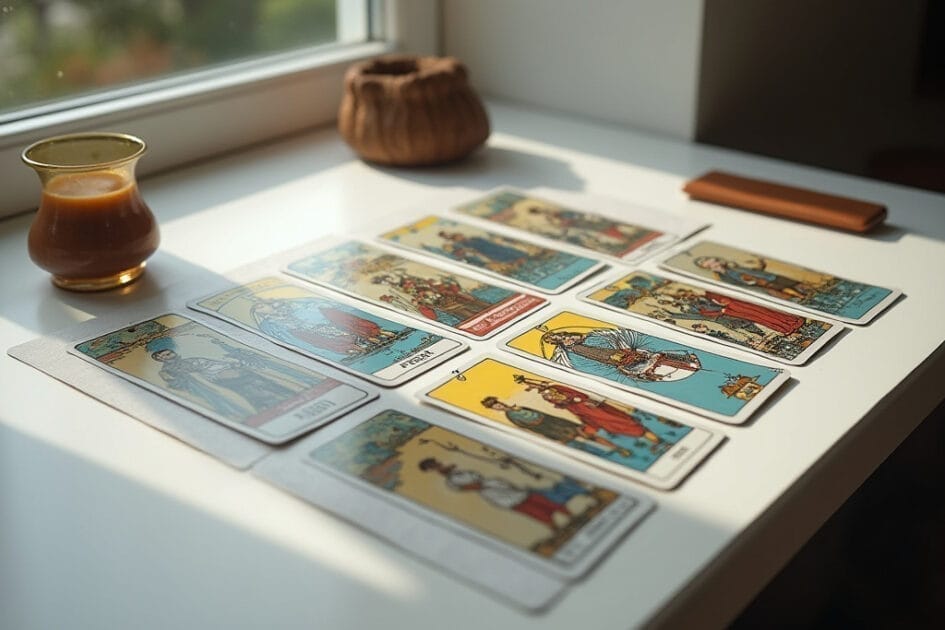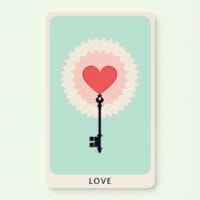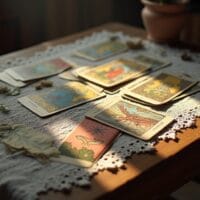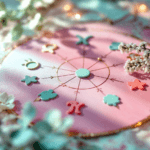Table of Contents
A Complete Guide to Understanding the Cards
Tarot cards have been used for centuries as a tool for divination, self-reflection, and spiritual guidance. Whether you’re a beginner or an experienced reader, understanding tarot card meanings is essential for accurate and insightful readings. Each tarot card carries deep symbolism and significance, helping individuals gain clarity in various aspects of life. This guide will explore the meanings of tarot cards, their interpretations, and how they can influence different areas such as love, career, and personal development. If you want a detailed breakdown of tarot card meanings, check out our detailed Tarot Card Meanings.
A tarot deck typically consists of 78 cards divided into two sections: the Major Arcana and the Minor Arcana. The Major Arcana consists of 22 powerful cards that signify important life lessons and spiritual growth. Cards like The Fool, The Magician, and The Lovers represent major life transitions and pivotal moments. The Minor Arcana, made up of 56 cards, represents everyday experiences, challenges, and emotions. The Minor Arcana is further divided into four suits: Cups, Pentacles, Swords, and Wands, each symbolizing different aspects of life. Cups relate to emotions and relationships, Pentacles focus on financial matters and material stability, Swords deal with intellect and conflicts, while Wands are linked to passion, creativity, and action.
Major Arcana Tarot Card Meanings
Each Major Arcana card holds profound meaning. For instance, The Fool signifies new beginnings and limitless potential, encouraging one to embrace adventure and spontaneity. The Magician is associated with manifestation, power, and resourcefulness, representing an individual’s ability to turn ideas into reality. The High Priestess symbolizes intuition, mystery, and hidden knowledge, urging people to trust their inner voice. The Empress signifies abundance, fertility, and nurturing energy, often linked to maternal influences and creativity. On the other hand, The Tower signals sudden changes and upheavals, often seen as a warning of unexpected shifts that lead to transformation.
Minor Arcana Tarot Card Meanings
The Minor Arcana provides deeper insight into everyday situations and practical experiences.
The suit of Cups governs emotions, relationships, and intuition. The Ace of Cups represents new love, emotional awakening, and happiness, while the Three of Cups signifies celebration, friendship, and strong social connections. The Ten of Cups is a card of family harmony, emotional fulfillment, and long-lasting joy.
The suit of Pentacles focuses on financial stability, work, and material possessions. The Ace of Pentacles represents financial opportunities and prosperity, whereas the Five of Pentacles indicates financial struggles and hardship. The Ten of Pentacles suggests wealth, long-term security, and generational success.
The suit of Swords is associated with thoughts, intellect, and conflict. The Ace of Swords represents mental clarity and truth, while the Three of Swords is linked to heartbreak, sorrow, and emotional pain. The Ten of Swords signals endings, betrayal, and deep transformation.
The suit of Wands embodies passion, creativity, and ambition. The Ace of Wands signifies inspiration and potential for new creative ventures, while the Four of Wands represents celebration, homecoming, and personal achievements. The Ten of Wands points to burdens, responsibility, and feelings of being overwhelmed.
How to Interpret Tarot Cards in a Reading
Understanding tarot card meanings is just the beginning. A successful tarot reading involves considering the card’s placement within the spread, its symbolism, and how it relates to the querent’s situation. When interpreting tarot cards, it is essential to analyze their positioning—whether they appear in the past, present, or future slots. Surrounding cards can also influence the meaning of an individual card. Trusting intuition plays a crucial role in reading tarot cards, allowing the reader to unlock deeper insights. Reversed tarot cards, or cards appearing upside down, may indicate delays, internal struggles, or alternative perspectives on a situation.
Popular Tarot Spreads and Their Significance
There are various tarot spreads used to gain insight into different situations. The Tarot Destiny Reading is simple yet effective, offering a glimpse into past influences, present circumstances, and future outcomes. The Celtic Cross spread, one of the most well-known tarot spreads, provides a detailed reading covering obstacles, influences, external factors, and possible outcomes. The Relationship Spread is specifically designed for gaining insights into love and personal relationships, analyzing strengths, weaknesses, and dynamics between two individuals.
Mastering tarot card meanings requires patience, practice, and an open mind. Each tarot card tells a story and offers valuable insights into various aspects of life, from love and career to spiritual growth and personal development. Whether using tarot for guidance, self-reflection, or professional readings, a strong understanding of tarot card meanings enhances the reading experience. If you are looking for in-depth tarot interpretations, visit our Tarot Cards Meaning page to explore a complete guide to tarot card meanings and their significance in different areas of life.
FAQ
What is the best way to learn tarot card meanings?
The best way to learn tarot card meanings is through consistent practice, studying reputable sources, and keeping a tarot journal to document personal interpretations and experiences. Using a guide like TarotGuiding can also be helpful.
Do tarot cards predict the future?
Tarot cards do not predict the future with certainty but provide guidance based on current energies and circumstances. They help individuals make informed decisions by offering insight and possible outcomes.
What should I do if I get a ‘bad’ tarot card in a reading?
Are reversed tarot cards always negative?
Not necessarily. Reversed cards can indicate delays, internal reflection, or alternative perspectives. Their meaning depends on the context of the reading.
Can I use tarot cards for meditation?
Yes, tarot cards are excellent tools for meditation and self-reflection. Focusing on a card’s imagery and symbolism can deepen personal insights and enhance intuition.





Leave a Reply